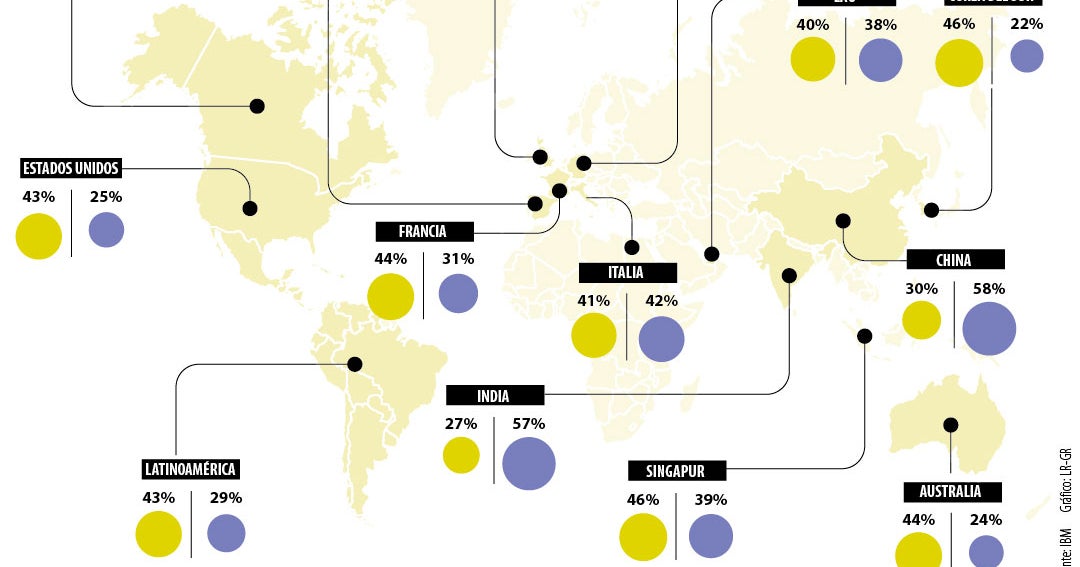According to data recorded by the IBM Global Artificial Intelligence Adoption Index, the global adoption rate of this technology has increased significantly.last year it increased by four percentage points compared to 2021 and remained at 35%.
Globally, 44% of organizations are working to incorporate artificial intelligence into applications and their processes, a figure leading to 2022. In recent years, there has been an evolution in the adoption of these technologies at the business level as they are of great help to the labor sector.
In Latin America, 80% of companies have already had contact with artificial intelligence and large companies, According to a study by NTT Data and MIT, titled “Artificial Intelligence in Latin America 2023: Exploring Artificial Intelligence as a Driver of Change in the Digital Frontier, Latin America plans to allocate more than 15% of its budget to AI technology in the coming years. ‘.
“Latin America is adopting the functionality of AI in accordance with what its needs and the scope of its use required in the development of its innovation processes. This provides a unique opportunity to make the most of the available data to solve problems and anticipate challenges that may arise,” commented Alejandro Comisario, Senior VP of Engineering at Rappi.
Globally, IBM reports that 42% of companies today say they are exploring the use of AIand The NTT study reveals that 71% of companies surveyed recognize the great potential of this technology for their businessIn addition, most respondents expect a significant increase in investment in this area.
In turn, IBM data shows the deployment of AI in 7,502 companies worldwide, or 500 in each country, in the United States, China, India, the United Arab Emirates, South Korea, Australia, Singapore, Canada, United Kingdom, Italy and Spain, France and Germany; In Latin America, 1,000 people have been registered to enter AI by 2022 in Brazil, Mexico, Colombia, Argentina, Chile and Peru.
“Artificial Intelligence in Latin America 2023” revealed that approximately 60% of Latin American companies started using artificial intelligence more than a year ago. and just over 20% started in 2023; and only 20% still remain outside this trend.
Last year, 35% of companies worldwide said they were using AI in their business, and another 42% said they were researching AI. Artificial intelligence helps companies address labor and skills shortages by automating repetitive tasks.
In the region, among companies that have made contact with AI, 39% are in the early stages of “exploration”, a jump from 21% in 2022. In addition, 30% of companies have advanced to the “production” stage and 6% are in the “management” category.
The data also reveals that Colombia and Mexico are the leaders in the region when it comes to recognizing the potential of artificial intelligence, with 84% and 83% respectively.; while Peru (58%) and Argentina (60%) emerged as countries showing some caution about the technology’s potential.
“Although the adoption of artificial intelligence has not been as fast in Latin American countries, compared to other countries such as the United States.Local companies are increasingly open to implementing this technology,” said Jorge Vergara, Chief Technology Officer (CTO) at IBM.
Concerns about AI implementation
As explained by Adalberto García, cybersecurity consultant at Control Risks, AI, considering the region’s employability and digital literacy ratecausing widespread insecurity, especially in Latin American countries such as Colombia.
“Most of the population views these advances with fear, many believing that jobs could be replaced by new technologies., which represents a challenge for its adoption. “The level of poverty in the region makes implementation even more challenging.”

